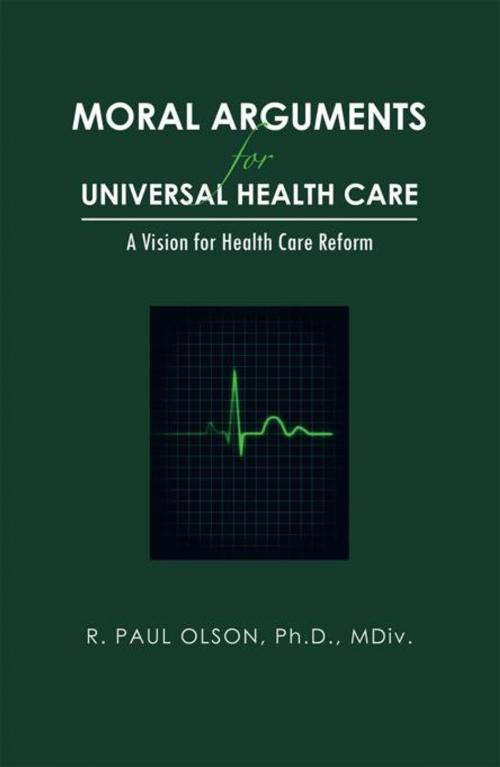Moral Arguments for Universal Health Care
A Vision for Health Care Reform
Nonfiction, Reference & Language, Education & Teaching| Author: | R. Paul Olson | ISBN: | 9781467856263 |
| Publisher: | AuthorHouse | Publication: | February 6, 2012 |
| Imprint: | AuthorHouse | Language: | English |
| Author: | R. Paul Olson |
| ISBN: | 9781467856263 |
| Publisher: | AuthorHouse |
| Publication: | February 6, 2012 |
| Imprint: | AuthorHouse |
| Language: | English |
Health care reform is always about more than morality and values, but if it lacks a moral foundation, it will not stand the test of time. Dr. Olson provides a moral foundation expressed in eight standards derived from his study of ethics, systems theory, and health policy research. From these normative standards he derives a vision of universal health care as both a public policy of protecting and promoting the health of an entire population, and a system for organizing, fi nancing, and delivering high quality care, which is affordable and accessible to everyone based on their need. Universal health care is fi nanced fairly to ensure sustainability through shared responsibility with personal choice of health care providers and/or health care plans. This unifying vision for health care reform is pluralistic with respect to the design of systems to implement it. The author provides several moral arguments from divergent ethical theories, which converge to support his vision of universal health care and its specifi c elements. In the process, he illustrates how to reason to moral conclusions based on clear thinking about both values and relevant facts. He also shows why and how ethical discourse is both relevant and necessary to the formulation, implementation, and evaluation of health care policy. Discussion of the controversy over medically necessary care and an ethical analysis of the Affordable Care Act are unique features of this book.
Health care reform is always about more than morality and values, but if it lacks a moral foundation, it will not stand the test of time. Dr. Olson provides a moral foundation expressed in eight standards derived from his study of ethics, systems theory, and health policy research. From these normative standards he derives a vision of universal health care as both a public policy of protecting and promoting the health of an entire population, and a system for organizing, fi nancing, and delivering high quality care, which is affordable and accessible to everyone based on their need. Universal health care is fi nanced fairly to ensure sustainability through shared responsibility with personal choice of health care providers and/or health care plans. This unifying vision for health care reform is pluralistic with respect to the design of systems to implement it. The author provides several moral arguments from divergent ethical theories, which converge to support his vision of universal health care and its specifi c elements. In the process, he illustrates how to reason to moral conclusions based on clear thinking about both values and relevant facts. He also shows why and how ethical discourse is both relevant and necessary to the formulation, implementation, and evaluation of health care policy. Discussion of the controversy over medically necessary care and an ethical analysis of the Affordable Care Act are unique features of this book.















